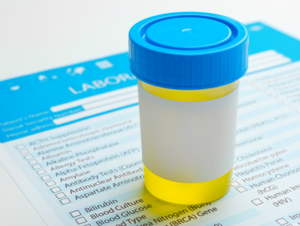My blood test showed my calcium at 9.5 but a 24 hour urine test my calcium was 523. Why the difference?

.png)
Let’s start with what each test is measuring. Blood calcium tests are checking for the concentration of calcium in your blood. In the US, the result is given in milligrams of calcium per deciliter of blood, or mg/dl. Your blood calcium concentration is 9.5 mg/dl.
Your 24 hour urine calcium result is giving the total amount of calcium that is going into your urine over a 24-hour period. The result is in milligrams per 24 hours (mg/24 hr) or milligrams per day (mg/d).
Your parathyroid glands are regulating your blood calcium concentration - they try to keep the calcium concentration in a tight range. But they don’t care too much about the urine calcium. Often, the concentration of calcium in your blood will influence the amount of calcium in your urine. But there are multiple factors that determine urine calcium, and it tends to vary more than blood calcium. It varies based on how much calcium you got in your diet that day. If you took a lot of calcium in supplements, then your urine calcium will tend to be a little higher than if you took no supplements. It also varies based on other dietary factors, such as sodium intake. High sodium diets will tend to produce higher urine calcium levels.
There is also a condition called renal calcium leak, in which the kidneys inappropriately release too much calcium into the urine. This will often lead to kidney stones and may cause secondary hyperparathyroidism if the blood calcium levels are depleted from losing calcium in the urine.
With primary hyperparathyroidism, we often see high urine calcium levels, but this is not diagnostic, and you can also see low urine calcium levels. A high urine calcium level in itself does not indicate parathyroid disease. Parathyroid disease is diagnosed with the blood calcium and PTH levels.



